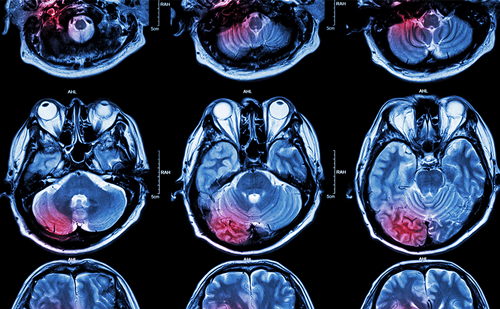This issue of US Neurology includes a special focus on epilepsy, with articles on sudden unexpected death in epilepsy (SUDEP), surgery for intractable epilepsy, and a review of treatment for childhood absence. Each of these addresses an issue of special clinical importance. SUDEP is increasingly recognized as a major concern for patients and their families. Its epidemiology, etiology, and mechanisms are not well understood, but have become the focus of innovative research efforts. For patients with seizures not responsive to antiepileptic drugs, surgery, in carefully selected and evaluated patients, has been shown by several studies to offer the best chance for a seizure-free outcome. Recent data on absence have contributed to our knowledge of the best drug treatment choices, as well as seizure prognosis and comorbidities.
The importance of comorbidities in epilepsy was emphasized in the March 2012 report of the Institute of Medicine, ‘Epilepsy Across the Spectrum’, sponsored by 24 US government agencies and non-profit organizations united in the ‘Vision 20–20’ consortium. Patients suffer not only from seizures but disorders such as depression and endocrinopathies that may be part of the underlying illness, or side effects of anti-epileptic drugs, as well as persistent stigma, contributing to social isolation and poor quality of life. Our knowledge of the epidemiology of epilepsy is limited, and many patients go undiagnosed. Standards of optimal practice are ill-defined, and accreditation procedures for epilepsy centers are lacking. Insufficient professional education is highlighted by underutilization of surgery for patients with seizures not controlled by anti-epileptic drugs. As for many chronic diseases, delivery and coordination of services in the community is poor. Moreover, patients and their families have limited understanding of the disorder, making it difficult for them to seek out and obtain the best possible care. Persistent stigma, despite improvement over the last few decades, shows poor public knowledge. The Institute’s report contains a series of recommendations designed to address the problems identified. Of particular importance for neurologists, the American Epilepsy Society and the American Academy of Neurology have been identified as two of the lead organizations charged with carrying out the recommendations. There is international recognition of the need for renewed efforts to understand and treat epilepsy; The Pan American Health Organization issued a strategy and plan of action on epilepsy for the Americas in October 2011.
One effort to improve professional education carried out over several years has been development of an American Board of Psychiatry and Neurology Added Qualification in Epilepsy Medicine, as well as a fellowship training program certified by the American Board of Medical Specialties. The first examination will be offered in 2013. Additional information is available on the American Board of Psychiatry and Neurology website.
A special emphasis on epilepsy is particularly appropriate for US Neurology, and comes at an exciting time for the field. US Neurology would like to thank everyone who contributed to this edition and special thanks go to the expert authors for providing such an insightful selection of articles. ■
Foreword – US Neurology, 2012;8(1):8
Article
Further Resources

Trending Topic
Welcome to the latest edition of European Neurological Review, which features a wide range of articles of interest to neurologists and other practitioners involved in the care of patients with neurological illness. As we move into a new decade, the field of neurology continues to face fresh challenges. Despite an increased understanding of the pathophysiological […]
Related Content in Brain Trauma

This year, the Alzheimer’s Association International Conference (AAIC) took place in Chicago, IL, US, July 22–26, 2018. During this major annual international meeting dedicated to the advancement of Alzheimer’s disease (AD) and dementia science, an impressive array of the ...

Welcome to the spring edition of US Neurology, which features a range of articles that have been chosen for their evaluation of current practices and research that directly affect neurologists and other practitioners involved in the care of patients with ...

“Insanity is doing the same thing over and over again and expecting different results.” Though the quote appears to be misattributed to Albert Einstein, its prudence is undeniable.1 CLEAR III (NCT00784134) provides ample evidence that this axiom has useful wisdom ...

Neuroprotective Strategies in Traumatic Brain Injury Peter JD Andrews Western General Hospital NHS Trust and University of Edinburgh, UK Any severe trauma to the brain results in the activation of a cascade of biochemical pathways and release of chemical mediators. ...

Targeted Temperature Management as the Standard of Care – Aligning Practice, Evidence and Guidelines
Scope of the fever problem in the neurological intensive care unitPresented by Stephan A MayerNeurocritical Care, Icahn School of Medicine at Mount Sinai, New York City, New York, US Fever-related brain injury in the neurological intensive care unit (NICU) has ...

Report from a Satellite Symposium held at the 28th Annual Congress of the European Society for Intensive Care Medicine, Berlin, Germany, 5 October 2015 Temperature management to avoid fever is standard practice in patients with traumatic brain injury (TBI), subarachnoid haemorrhage and ...

Welcome to the latest edition of European Neurological Review. This issue features several satellite symposia reports. The three pillars of success for long-term rehabilitation programmes in spastic paresis are outlined by Ward et al: setting patient-centred goals, detailed clinical assessment ...

Traumatic brain injury (TBI) is a condition with many unmet needs in medicine and public health.1,2 It is a major cause of death and disability and also leads to extremely high direct and indirect costs to society.3–5 Currently the incidence ...

Welcome to the winter edition of European Neurological Review, which features a diverse range of articles covering a number of therapeutic areas. This edition begins with a special report entitled ‘A Year of the Brain’. This article focuses on the ...

Until recently, neuroscientists assumed that the brain was fixed in terms of function and structure. Nowadays, data supporting the notion of neuroplasticity1 have grown to such an extent that former assumptions must be replaced. Brain plasticity,2,3 the possibility of adapting ...

As the 751 new European MEPs begin their term, the European Brain Council (EBC) is launching its Year of the Brain, calling for new thinking from policy-makers to take stock of the impact of austerity on health and wellbeing in Europe. ...

Modern anaesthetic practice requires the anaesthesiologist to care for extremely sick patients while negotiating the intricacies of myriad procedural environments. One such unique environment that is becoming increasingly important for contemporary anaesthesiologists to be familiar with is that of the ...
Latest articles videos and clinical updates - straight to your inbox
Log into your Touch Account
Earn and track your CME credits on the go, save articles for later, and follow the latest congress coverage.
Register now for FREE Access
Register for free to hear about the latest expert-led education, peer-reviewed articles, conference highlights, and innovative CME activities.
Sign up with an Email
Or use a Social Account.
This Functionality is for
Members Only
Explore the latest in medical education and stay current in your field. Create a free account to track your learning.

